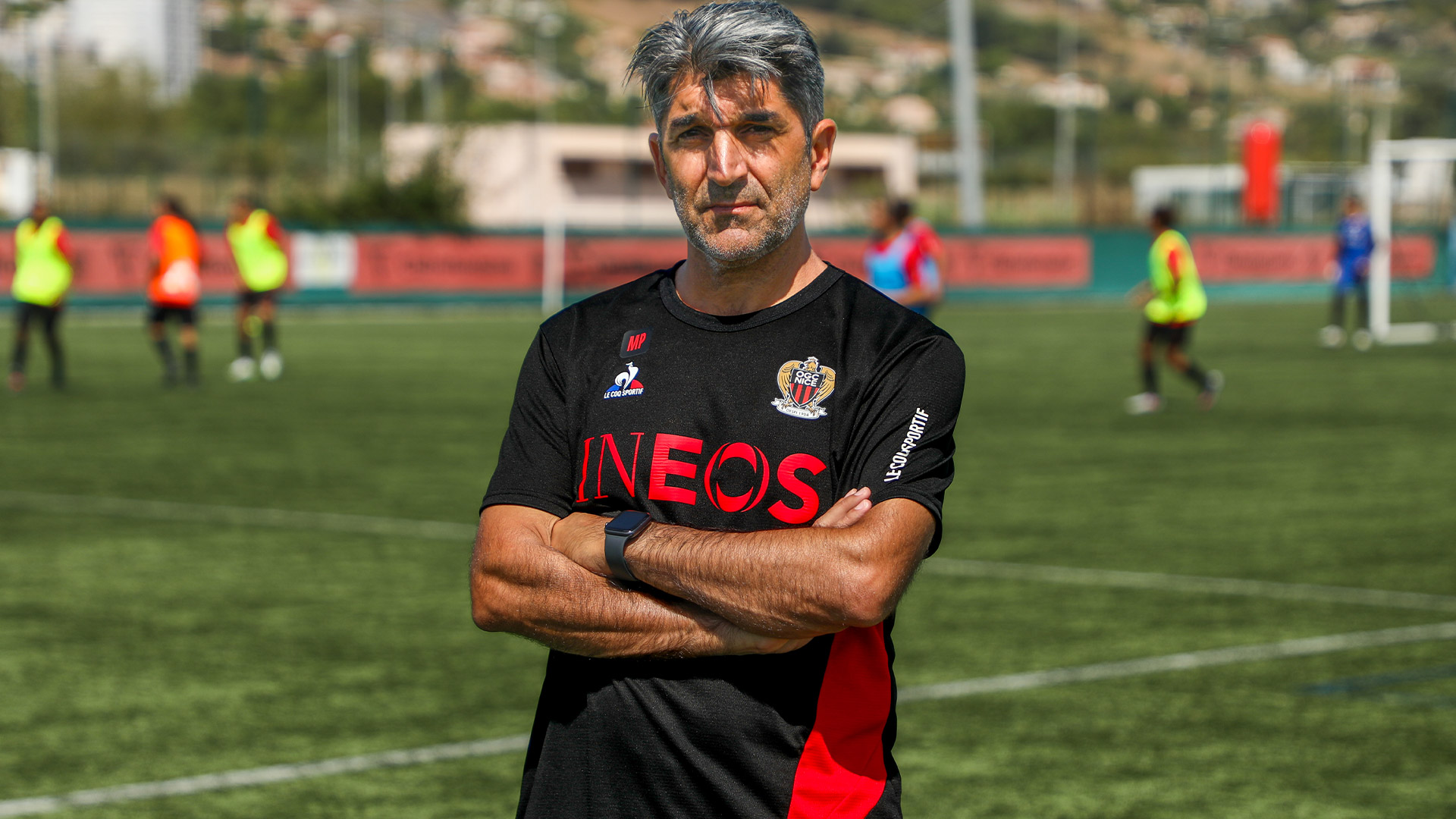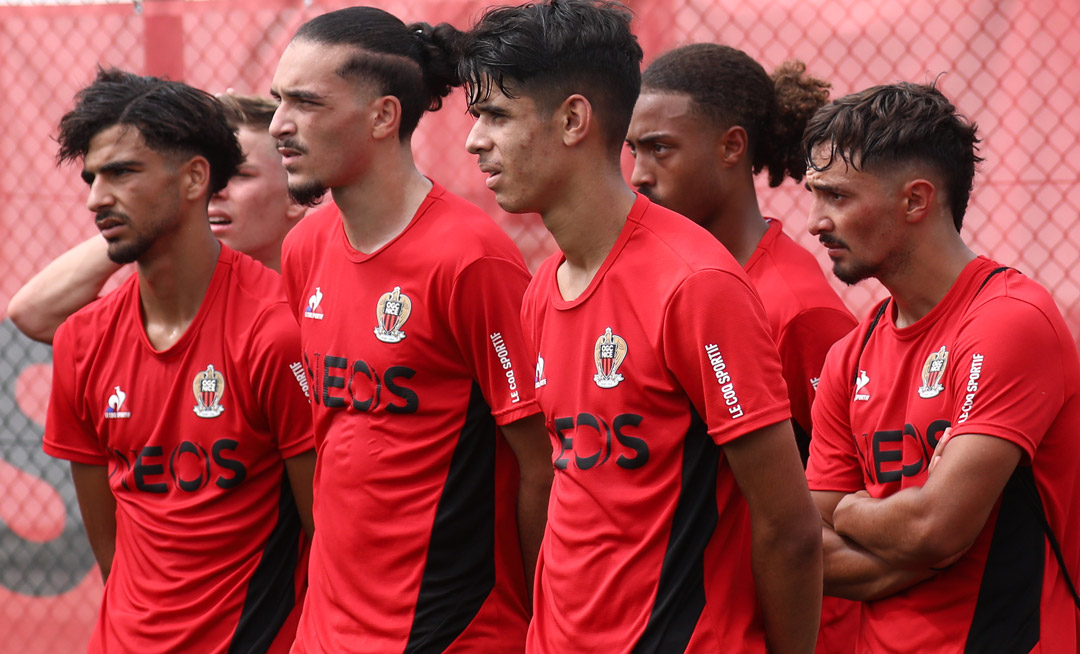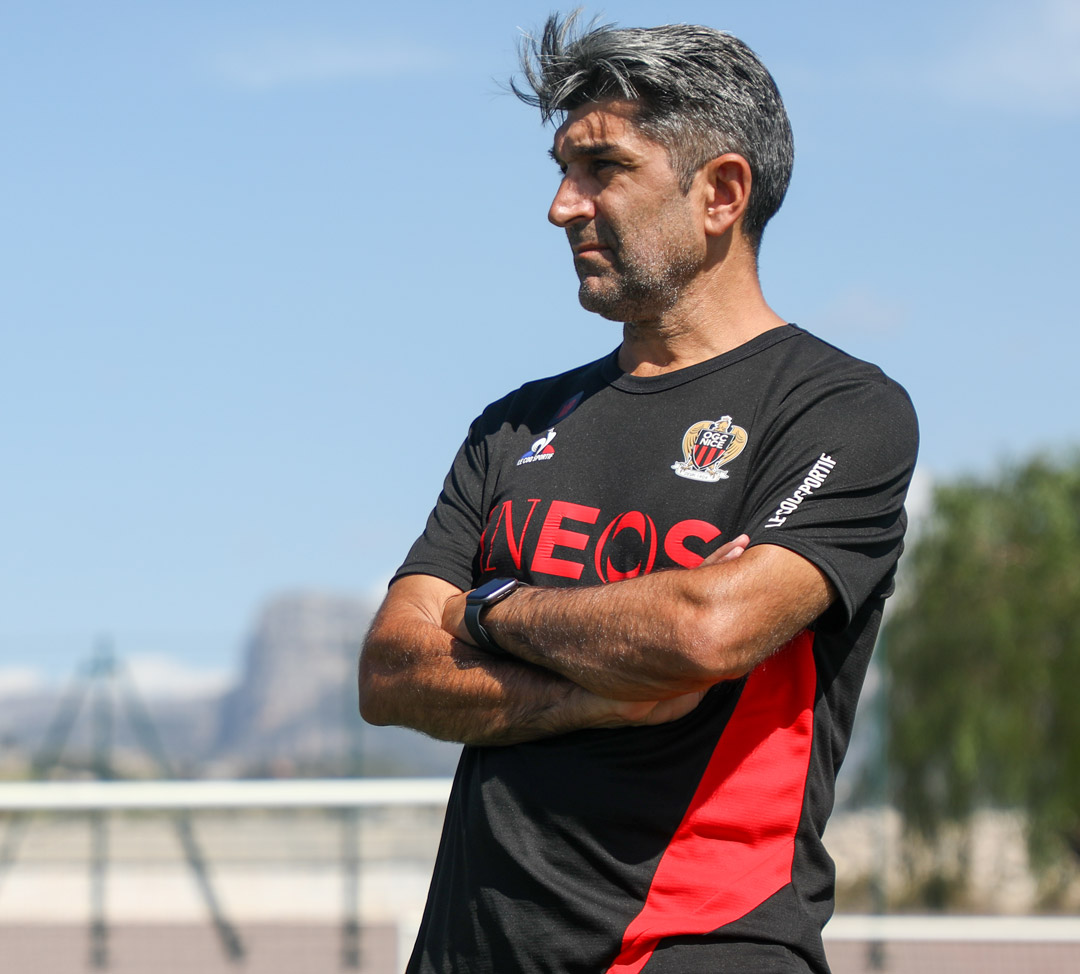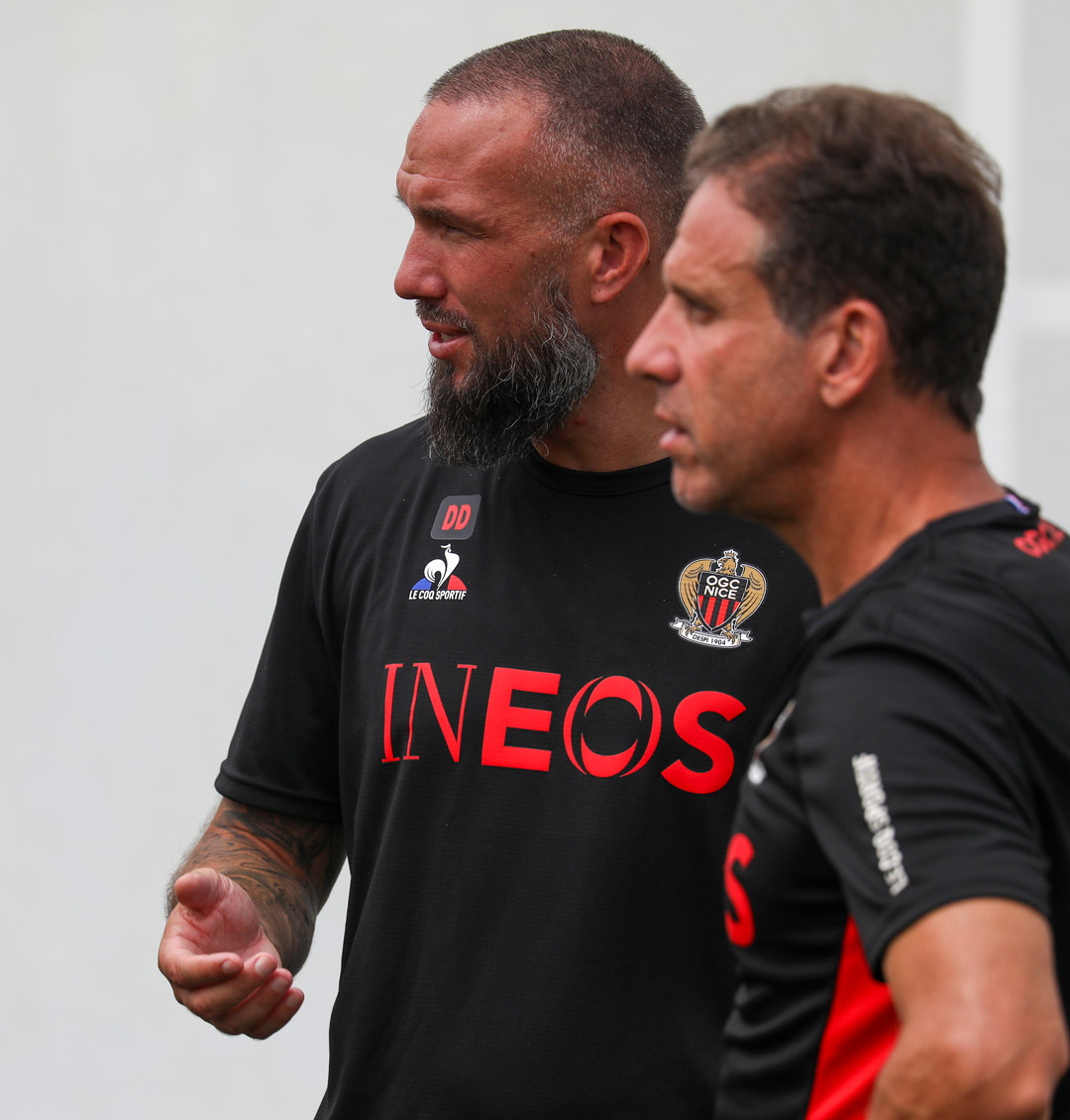
Youth academy
Manu Pires explains the changes
While the youth academy teams have begun their pre-season preparations, there have been a number of changes within the Rouge et Noir academy. Manu Pires, the academy's director, explains the changes.
An 'elite group' has been created. What is its role?
"We'd been thinking for some time about developing our post-training activities further. We felt that the N3 [D5] championship no longer corresponded at all to a training model for our players, at least not over a full season. So, like a number of other clubs, we wanted to move away from the 'classic' leagues and get into matches that were a little more in line with what we were looking for. This will enable us to get younger players playing."

What opponents will the elite group face?
"There are three parts to our planned matches. The first will be against 'adult' teams from the region, including Grasse, Fréjus, Cannes, Toulon and Martigues. We'll have ten or 12 of these matches during the season. Secondly, there will be matches against youth academies: 12 or 14 against other elite groups. Finally, the third area is matches against foreign academies and foreign reserves. As such, we will be taking part in a championship called the Premier League International Cup, created in 2016 by the Premier League. Four matches have already been scheduled: against Leeds, Wolverhampton, Blackburn and Nottingham Forest. There are 12 English and 12 foreign teams, including three French, with four group matches and others to be added if we go further in the competition."
Such a programme was difficult to stay on top of with a traditional reserve team...
"Our objective was really to rejuvenate this reserve group and to keep only lads with whom we could see ourselves playing. The question of slots is also capital. This system will allow us to play on Mondays, Tuesdays or Wednesdays, but also to modulate our programme according to the senior squad. To put it simply: as soon as we know the date of the first-team match, we can get organised, which we can't do under FFF regulations, because matches are scheduled at weekends. For us, as coaches, it's a really positive thing. For our young players, who are on the bench at the very top, it's better to play a full competitive match on a Monday or Tuesday than an additional training session, which can sometimes be frustrating."

There will still be a team competing in R1.
"That's something new too. Last season's descent into R1 was not at all envisaged or planned, but that in no way detracts from our youth development project. On the contrary, this R1 team will enable us to make up for the lack of playing time for lads who won't necessarily be playing in the elite group or in the national U19s. It gives us an extra competition in the season, with 22 matches to play over the weekends defined by the FFF schedule. We're happy to stay in R1. It's a good way of developing against 'adult football', which will keep the boys involved in the reality of a championship. We're delighted that the club has understood our request for a parallel championship for the elite group, in addition to this classic model."
Are there any changes at U19 and U17 level?
"We're going back to the same thing, but we've got younger players. The U17s will integrate the U15s and U16s during training week. The same applies above: virtually all the U17s and U18s will join the U19 group during the week, before the weekend selections and competitions, when we'll try to strike a good balance. The slight difference with last season is that we're looking at age groups and not necessarily teams."
« When you're a competitor, the aim is to win, every day»
Manu Pires
What goals can you set?
"When you're a competitor, the aim is to win every day. We have to get our players to have that competitive spirit. Successful sportsmen and women are those who have high standards. Collectively, we're obviously aiming for first place, because we want the best. Individually, each player must aspire to move up to the higher categories. We don't necessarily want our youngsters to have a hard time of it, but we don't want to make them comfortable either: we want them to seek out the complexity of the next level."
Any changes to the coaching staff?
"Johann Louvel [France U19 coach] has gone to Dubai to coach in the second division. Marama Vahirua [reserve team coach] is at Grenoble as assistant to Vincent Hognon, who is also a former Aiglon. He aspires to be a professional coach, so he's getting a little closer to his project. With these two major departures, we had to put together a new staff. Didier (Digard) returned to head up the elite group. Cédric Colin has joined us and will take charge of R1. He was with us two years ago, with Didier at reserve level, and he did a really good job. He's a highly competent coach who fits in perfectly with the profile we're looking for. Christophe Raymond is taking charge of the national U19s, where he will work with Cédric Varrault. He's an experienced trainer, with whom we share the same mindset and the same training philosophy. Romain Lattron will keep the U17 squad, while Johan Audel is looking after the U16s. We really do form a genuine pre-training-training development staff, with Titou Hasni coordinating the pre-training assistants, who also attend the youth academy sessions in the mornings. There's a really united staff, and we're happy to have built up this vital force, because youth development is a club project, but first and foremost a matter of men and women."

Anything else you'd like to add?
"We believe in youth development. We really want OGC Nice to be one of the biggest training clubs in the future, to supply more players to the first team. Last year, thanks to Didier, we were able to see a few players come through the ranks. They were young players aged 18. It's a pleasure, we're happy because it creates a sense of emulation. When you see a youngster playing at the Allianz Riviera, on the pitch in L1 or in the European Cup, it gives us a lot of enthusiasm and optimism. It also gives meaning to all our work."
You mentioned Didier Digard's return to coaching. What will he bring you?
"The demands of the very highest level. He's been through a lot in six months. He's taking his diploma this year, and he's developing rapidly. He's progressed quickly to the level of the pros. Quite selfishly, I'm very happy to have him. We know that today's players develop very quickly, in terms of power, intensity, responsibility, initiative and decision-making. He's only been at the very highest level for six months. Now the reserve team and the whole centre will benefit from it. We're also delighted to have Fred Gioria on board as talent manager. He brings us all the experience of his 15 years spent in L1 as an assistant. The players and instructors at the training centre are lucky to have staff with such expertise."
Thibault Rivière


